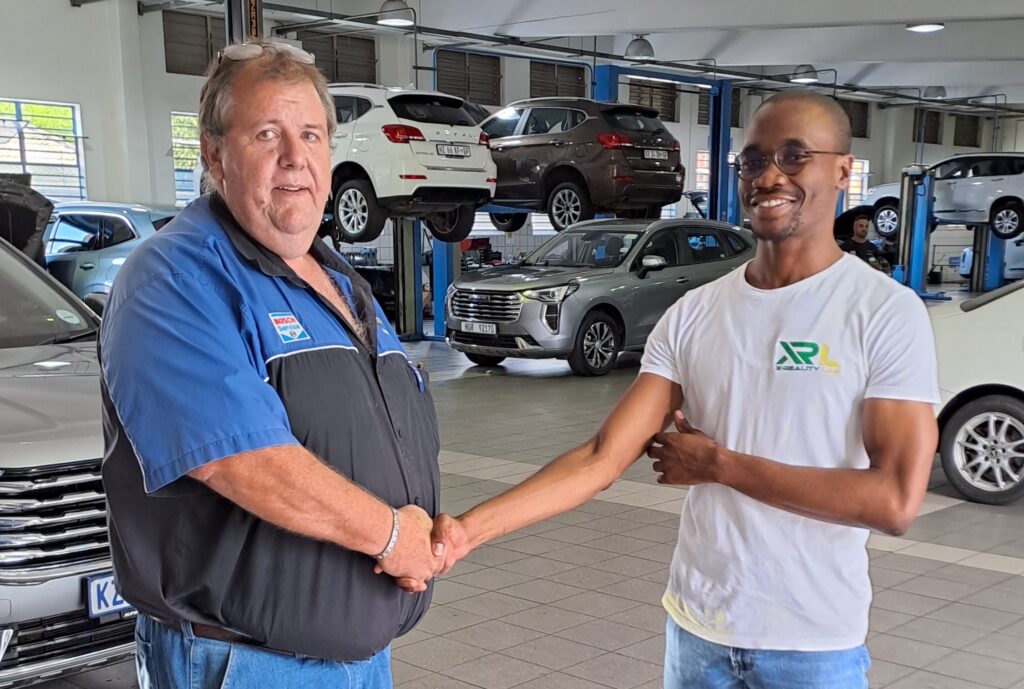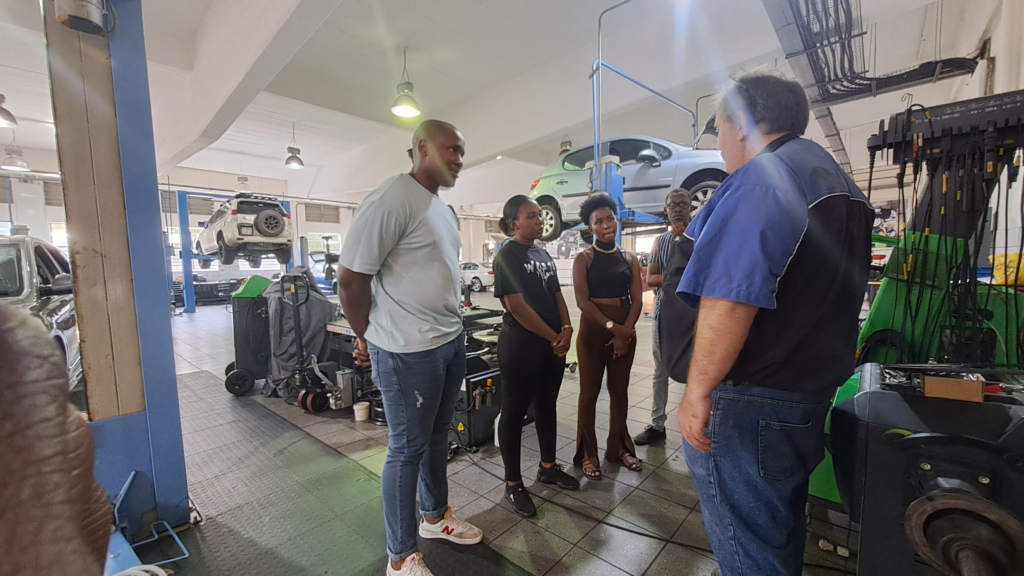A dialogue with the Service Manager at an Automotive Workshop.


In preparation for the Metanous Webinar in early 2024, the XR Team visited the renowned BOSCH Automotive Mechanic Workshop which prides itself in being the number 1 multi-franchise in Hatfield, Pretoria. Initially, a BMW dealership was established in 1984 and now servicing large brands such as Haval, GWM, VW, GOLDWAGEN, and many more. It boasts highly motivated management and staff who are fully committed to values of integrity, achievement, and empathy. One of which is Mr John Lodder, the Service Manager with over 32 years of experience in automotive mechanics. We asked him what are the challenges they face with new graduates and lastly, what are the minor service tasks they perform regularly, and that they show us how they are done.
Mr. John Lodder explained in-depth how they battle with new graduates who cannot perform basic diagnosis and troubleshooting tasks, reading circuit diagrams, and minor repair tasks. Additionally, they undergo multiple theoretical assessments and then get qualifications but lack the capabilities to do the work. This brings many encounters of having to upskill new graduates who successfully completed their certificates, diplomas, and higher without experience. This brief by the workshop conversation confirmed that more hands-on training is required in the early years of the careers of artisans, technicians, and engineers. This will alleviate the costs of upskilling new mechanics for the automotive sector. We then had a follow-up question of what exactly went wrong according to his opinion.
There must be a balance between theory and practice. For a skilled artisan to ascend the corporate ladder they must be able to express themselves theoretically. It went wrong when society placed more value on those who succeed in theory and looked down upon those who are more inclined to work hands-on. Further to this, one’s performance in Maths indicates their ability to think logically and solve a problem. Nowadays there are lower pass rates in Maths and Science meaning even those who cannot solve problems are undertaking Engineering-related courses. Then they battle through the syllabus and mostly do not take it upon themselves to search for information because they lack passion. This was his closing remark, without passion, there will be no endurance and excellence, so the question is why do you want to be a mechanic? It’s about the purpose, the reason you want to do it.
Mr Lodder enjoys sharing knowledge, this was evident in the illustrations he made and how he kept conversations relevant to the status quo in the workshop, government, and our communities. He expressed his excitement about engaging webinar guests, especially in a practical manner as he saw possible in Metanous, which he said was freaky 😁🤯🚀. He then together with his team demonstrated basic service tasks including how to perform tyre and oil replacement, hydraulic lift inspection and operation, rear differential lock assembly, and much more. This included details such as why you must inspect the lift before using it and what to be careful of during the process.
Webinar Co-hosts are continuing to explore the problem of the gap between industry and academia and how it contributes to having incompetent graduates as new employees in the industry. This is done to determine the extent to which the problem exists in the automotive and electrical installations industries. For more info about this Industry expert and preparations for the Metanous Webinar 2024, follow the #MetanousWebinar